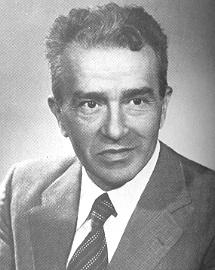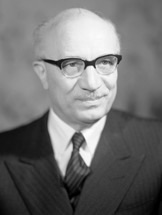Legislature VII Of Italy on:
[Wikipedia]
[Google]
[Amazon]
The Legislature VII of Italy ( it, VII Legislatura della Repubblica Italiana) was the 7th legislature of the Italian Republic, and lasted from 5 July 1976 until 19 June 1979. Its composition was the one resulting from the general election of 20 June 1976.
 *
*
 *
*
Main chronology
After the election which officially certified the historic growth of the communists,Aldo Moro
Aldo Romeo Luigi Moro (; 23 September 1916 – 9 May 1978) was an Italian statesman and a prominent member of the Christian Democracy (DC). He served as prime minister of Italy from December 1963 to June 1968 and then from November 1974 to July 1 ...
became a vocal supporter of the necessity of starting a dialogue between DC and PCI. Moro's main aim was to widen the democratic base of the government, including the PCI in the parliamentary majority: the cabinets should have been able to represent a larger number of voters and parties. According to him, the DC should have been as the centre of a coalition system based on the principles of consociative democracy. This process was known as Historic Compromise.
Between 1976 and 1977, Enrico Berlinguer's PCI broke with the Communist Party of the Soviet Union
" Hymn of the Bolshevik Party"
, headquarters = 4 Staraya Square, Moscow
, general_secretary = Vladimir Lenin (first) Mikhail Gorbachev (last)
, founded =
, banned =
, founder = Vladimir Lenin
, newspape ...
, implementing, with Spanish and French communist parties, a new political ideology known as Eurocommunism
Eurocommunism, also referred to as democratic communism or neocommunism, was a trend in the 1970s and 1980s within various Western European communist parties which said they had developed a theory and practice of social transformation more rel ...
. Such a move made an eventual cooperation more acceptable for christian democratic voters, and the two parties began an intense parliamentary debate, in a moment of deep social crises.
The proposal by Moro of starting a cabinet composed by DC and PSI and externally supported by PCI was strongly opposed by both superpowers. The United States
The United States of America (U.S.A. or USA), commonly known as the United States (U.S. or US) or America, is a country Continental United States, primarily located in North America. It consists of 50 U.S. state, states, a Washington, D.C., ...
feared that the cooperation between PCI and DC might have allowed the communists to gain information on strategic NATO
The North Atlantic Treaty Organization (NATO, ; french: Organisation du traité de l'Atlantique nord, ), also called the North Atlantic Alliance, is an intergovernmental military alliance between 30 member states – 28 European and two N ...
military plans and installations. Moreover, the participation in government of the communists in a Western country would have represented a cultural failure for the USA. On the other hand, the Soviets considered the potential participation by the Italian Communist Party in a cabinet as a form of emancipation from Moscow and rapprochement to the Americans.
The christian democrat Giulio Andreotti
Giulio Andreotti ( , ; 14 January 1919 – 6 May 2013) was an Italian politician and statesman who served as the 41st prime minister of Italy in seven governments (1972–1973, 1976–1979, and 1989–1992) and leader of the Christian Democracy ...
, known as a staunch anti-communist, was called in to lead the first experiment of a cabinet externally supported by the communists. Andreotti's new cabinet, formed in July 1976, included only members of his own DC party but had the indirect support of the communists. The cabinet was called "the government of the not- no confidence", because it was externally supported by all the political parties in the Parliament, except for the neo-fascist Italian Social Movement
The Italian Social Movement ( it, Movimento Sociale Italiano, MSI) was a neo-fascist political party in Italy. A far-right party, it presented itself until the 1990s as the defender of Italian fascism's legacy, and later moved towards national ...
. In this new climate of cooperation, on 5 July 1976 Pietro Ingrao
Pietro Ingrao (30 March 1915 – 27 September 2015) was an Italian politician and journalist who participated in the resistance movement.
For many years he was a senior figure in the Italian Communist Party (PCI).
Political career
Ingrao was bo ...
was the first communist to be elected as President of the Chamber of Deputies.
This cabinet fell in January 1978. In March, the crisis was overcome by the intervention of Aldo Moro, who proposed a new cabinet again formed only by DC politicians, but this time with positive confidence votes from the other parties, including the PCI. This cabinet was also chaired by Andreotti, and was formed on 11 March 1978.
On 16 March 1978, Aldo Moro was kidnapped by the Red Brigades, an ultra-left terrorist group, on the day in which the new government was going to be sworn in before parliament. Despite the huge shock that the kidnapping and the consecutive murder of Aldo Moro caused on the Italian politics, Andreotti continued as Prime Minister of the "National Solidarity" government with the support of the PCI. During this period the Parliament passed a long list of new laws and reforms, including the creation of the Italian National Health Service, the promulgation of the Basaglia Law
Basaglia Law or Law 180 ( it, Legge Basaglia, Legge 180) is the Italian Mental Health Act of 1978 which signified a large psychiatric reform in Italy, reform of the psychiatric system in Italy, contained directives for the closing down of all psych ...
for the closing down of all psychiatric hospitals and the parliamentary approval of a new law to legalize abortion.
In June 1978, the PCI gave its approval and ultimately active support to a campaign against President Giovanni Leone
Giovanni Leone (; 3 November 1908 – 9 November 2001) was an Italian politician, jurist, and university professor. A founding member of the Christian Democracy (DC), Leone served as the President of Italy from December 1971 until June 1978. ...
, accused of being involved in the Lockheed bribery scandal
The Lockheed bribery scandals encompassed a series of bribes and contributions made by officials of U.S. aerospace company Lockheed from the late 1950s to the 1970s in the process of negotiating the sale of aircraft.
The scandal caused consid ...
. This resulted in the President's resignation. The party then supported the election of the veteran socialist Sandro Pertini
Alessandro "Sandro" Pertini (; 25 September 1896 – 24 February 1990) was an Italian socialist politician who served as the president of Italy from 1978 to 1985.
Early life
Born in Stella (Province of Savona) as the son of a wealthy landown ...
as President of Italy.
Presidential election
On 29 June 1978 the Parliament and the representatives of the 20Italian regions
The regions of Italy ( it, regioni d'Italia) are the first-level administrative divisions of the Italian Republic, constituting its second NUTS administrative level. There are twenty regions, five of which have higher autonomy than the rest. ...
met to elect the sixth President of Italy. On 8 July 1978 the socialist Sandro Pertini
Alessandro "Sandro" Pertini (; 25 September 1896 – 24 February 1990) was an Italian socialist politician who served as the president of Italy from 1978 to 1985.
Early life
Born in Stella (Province of Savona) as the son of a wealthy landown ...
was elected on the sixteenth ballot with 832 votes out of 1011.
Government
Parliamentary composition
Chamber of Deputies
 *
* President
President most commonly refers to:
*President (corporate title)
* President (education), a leader of a college or university
* President (government title)
President may also refer to:
Automobiles
* Nissan President, a 1966–2010 Japanese ...
: Pietro Ingrao
Pietro Ingrao (30 March 1915 – 27 September 2015) was an Italian politician and journalist who participated in the resistance movement.
For many years he was a senior figure in the Italian Communist Party (PCI).
Political career
Ingrao was bo ...
(PCI), elected on 5 July 1976
* Vice Presidents: Virginio Rognoni (DC, till 13 June 1978), Oscar Luigi Scalfaro (DC), Maria Eletta Martini (DC, from 21 June 1978), Pietro Bucalossi (PRI), Luigi Mariotti (PSI)
Senate of the Republic
 *
*President
President most commonly refers to:
*President (corporate title)
* President (education), a leader of a college or university
* President (government title)
President may also refer to:
Automobiles
* Nissan President, a 1966–2010 Japanese ...
: Amintore Fanfani
Amintore Fanfani (; 6 February 1908 – 20 November 1999) was an Italian politician and statesman, who served as 32nd prime minister of Italy for five separate terms. He was one of the best-known Italian politicians after the Second World War and ...
(DC), elected on 5 July 1976
* Vice Presidents: Luigi Carraro (DC), Edoardo Catellani (PSI), Dario Valori (PCI), Tullia Carettoni Romagnoli (SI)
Senators for Life
A senator for life is a member of the senate or equivalent upper chamber of a legislature who has life tenure. , six Italian senators out of 206, two out of the 41 Burundian senators, one Congolese senator out of 109, and all members of the Bri ...
References
{{Legislatures of Italy Legislatures of Italy 1976 establishments in Italy 1979 disestablishments in Italy